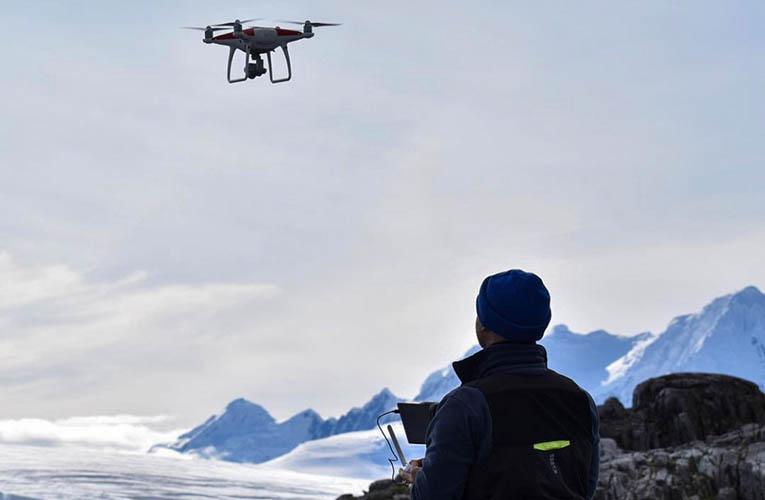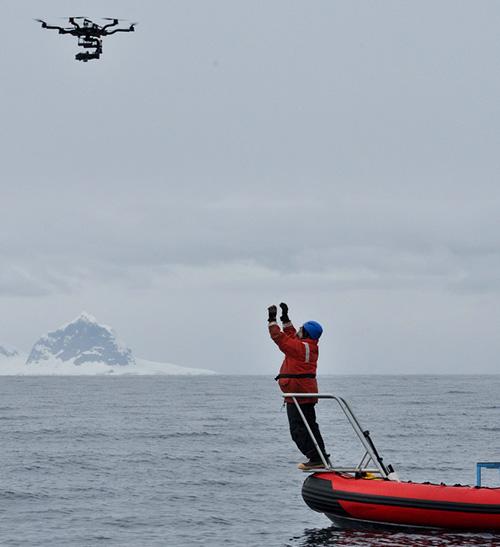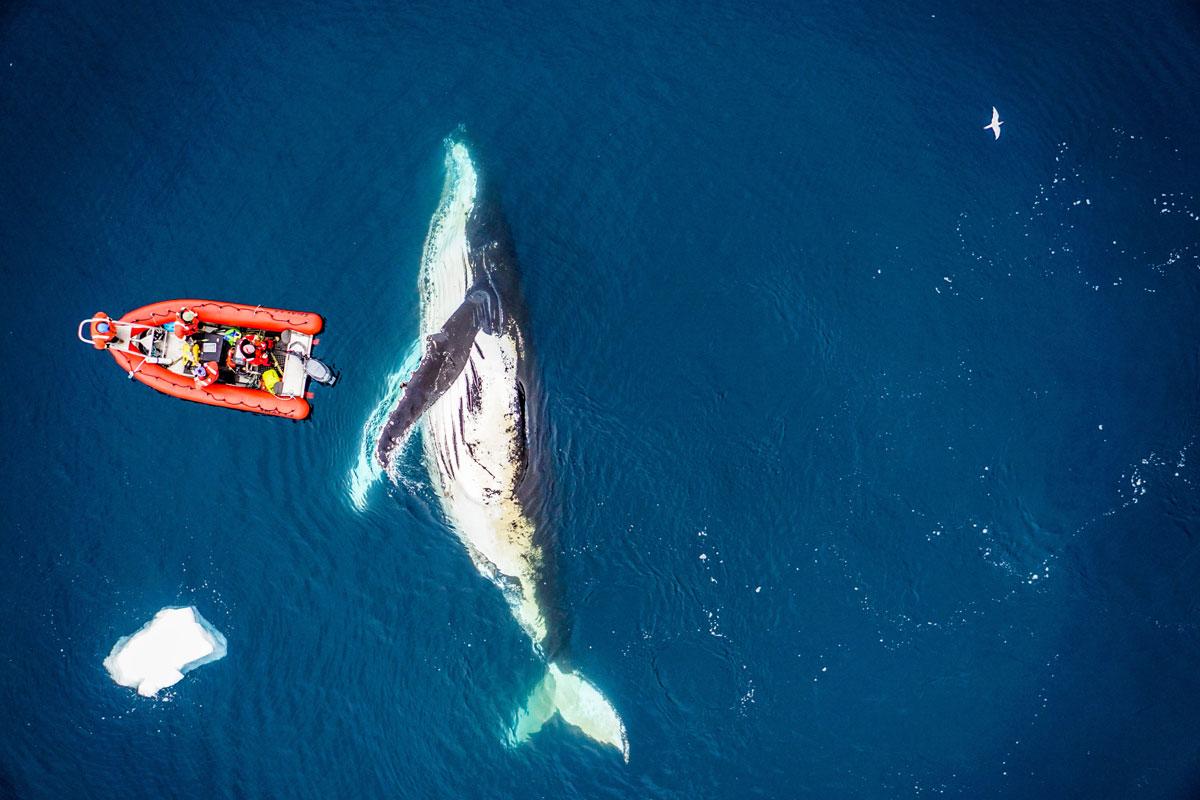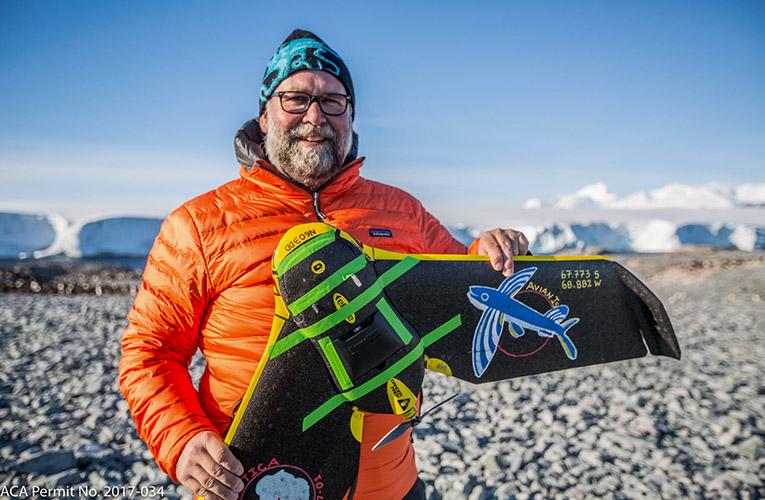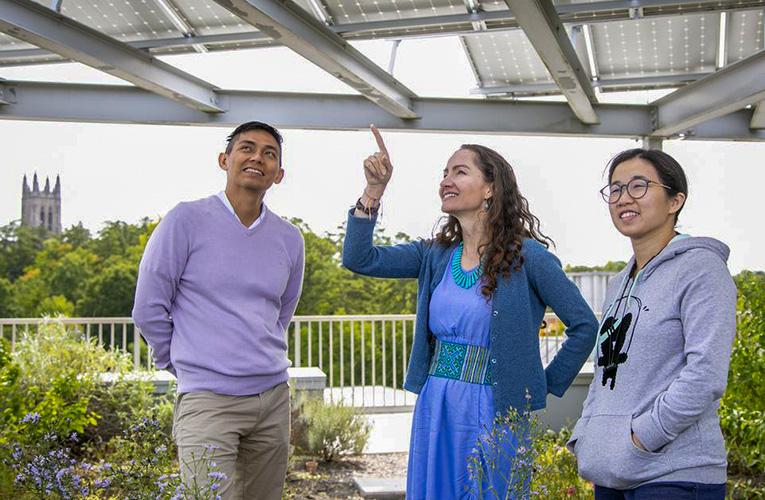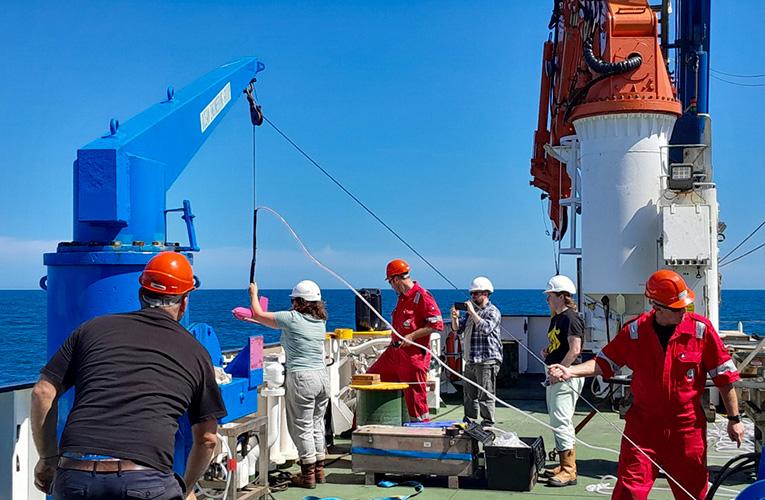The Marine Robotics and Remote Sensing (MaRRS) Laboratory, led by David Johnston, professor of the practice of marine conservation ecology, uses emerging technology to promote the conservation of marine species and spaces through research and education. The lab’s team incorporates biological, ecological, engineering and computational expertise while supporting student work.
Master of Environmental Management student Maia Griffith and research technician Josh Matheson recently shared insights into the MaRRS Lab, its research, their experiences in the lab and the opportunities the lab offers Duke students.
What is the lab's research focus and what big questions is it trying to answer?
"The Duke Marine Robotics and Remote Sensing Lab has been using Unoccupied Aircraft Systems (aka drones) since 2015, studying everything from blue whales to oysters to island geomorphology. The lab’s team incorporates biological, ecological, engineering and computational expertise and supports a wide range of student research and training. We place a strong emphasis on innovation with new remote sensing platforms, sensors and techniques, providing valuable educational experiences to the next generation of scientists. The primary focus of the lab is identifying and defining how drones and other high-resolution remote sensing systems can help address pressing conservation issues."
What has been your favorite or most rewarding experience in the lab so far?
Maia: "As the lab’s science communication manager, I have had the pleasure of diving into our scientific endeavors and interacting with lab members to share their stories and experiences. Plus, I get to spend lots of time exploring our vast collection of incredible images and videos taken during research projects, all of which are jaw dropping, to share on our social media platforms (@marine_uas)! This summer, I am excited to move to the Duke Marine Lab (DUML) to start my data collection for my Master’s Project studying shark behavior with drones while also conducting data analysis for a project the lab is working on in Mallows Bay (a new U.S. National Marine Sanctuary)."
Josh: "One of the most rewarding experiences so far has been working with DUML’s Community Engagement Fellow Rory McCollum to bring drones and technology to students in the local community via schools and outreach programs. Having students engage with this technology provides them with an opportunity to get hands-on experience and think critically about how best to implement these tools to support scientific work."
What opportunities does your lab offer students and how does that experience contribute to their academic and career growth?
“The MaRRS Lab encourages students of all levels from across Duke to engage in their own research or support current work. Undergraduates, master's students, Ph.D. students, and post-docs all collaborate in this space and learn from each other. Student researchers in the lab conduct their own research as well as support the activities of other lab members. The MaRRS Lab collaborates with partners around the world on pressing marine conservation issues, and our efforts often involve field research in both local and remote settings. Students working in the lab are encouraged and supported to generate tangible products, such as published software archives, data publications and peer-reviewed research articles.
The MaRRS Lab has also been instrumental in expanding drone-focused educational resources to reach beyond those affiliated with Duke University. For example, the lab recently developed a Coursera course called Drones for Environmental Science that provides an overview of how drones can be used for environmental research and monitoring. Plus, a more in-depth three-course sequence, UAS Applications and Operations in Environmental Science, was recently launched in partnership with Duke Environment+ to educate participants on the fundamentals of using drones in the environmental sciences, the basics of flight for research, and how to use drone data to test scientific hypotheses. These opportunities are key milestones in moving forward careers, expanding interests and engaging in interdisciplinary research.”
Each month the Nicholas School will highlight the work of one of its labs through the lens of a lab member. For more information on Duke Environment research visit our research page and to keep up with the latest news, subscribe to our monthly Research + Impact email newsletter. Explore more about the MaRRS Lab on the lab's website.
